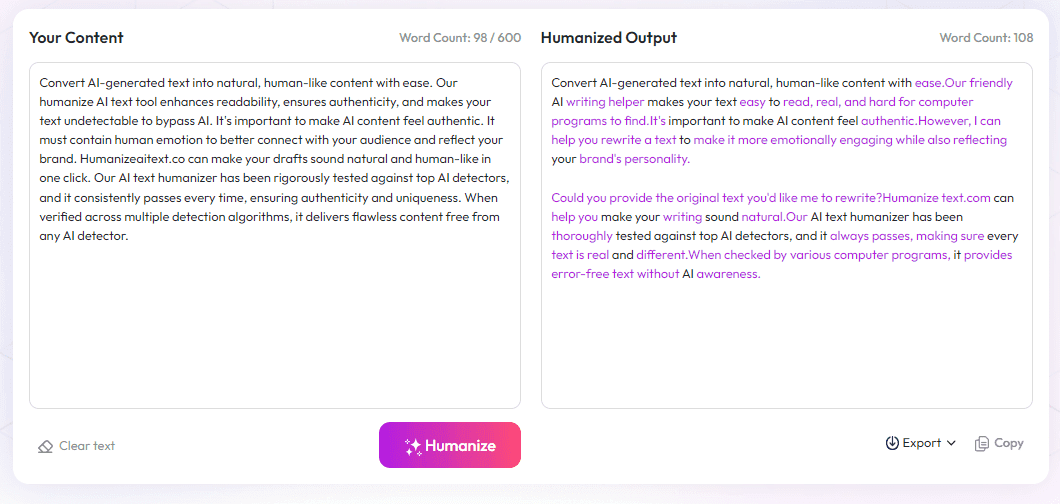Table of Contents
Thinking about an MFA for writing can be a big decision. You might wonder if it’s really worth the time and money or if you’re better off just writing your stories and hoping for the best. Stick with me—if you keep reading, I’ll help you figure out whether an MFA might fit your goals or if other options could be just as good for your writing journey.
By the end of this, you’ll have a clearer idea of what an MFA offers and whether it’s a good move for you. You’ll learn to weigh the pros and cons and consider your personal situation so you can make a choice that feels right. No fluff, just practical advice to help you decide if it’s the right path or not.
Key Takeaways
Key Takeaways
- An MFA helps improve writing skills through mentoring, workshops, and peer feedback. It offers a chance to focus solely on your craft and develop a strong portfolio. Networking opportunities can also open doors to publishing and industry contacts.
- While an MFA can boost opportunities in academia or certain writing roles, it doesn't guarantee fame or success. Many successful writers have built careers without one, focusing instead on talent, persistence, and networking.
- Getting into top MFA programs is very competitive, with acceptance rates often below 1%. The high costs—up to $108,000 or more—make it important to consider if the investment fits your financial situation and goals.
- Alternatives like online courses, local workshops, and self-directed writing can offer growth without the hefty price tag. These options can help you improve and connect within the writing community more affordably.
- Deciding on an MFA depends on your learning style, financial readiness, and career aims. If you thrive in structured settings and seek mentorship, it may be worth it. Otherwise, self-guided learning might serve you better.

Should Writers Get an MFA? Key Steps to Consider
Deciding whether to pursue a Master of Fine Arts (MFA) degree as a writer can feel overwhelming. With so many options and opinions out there, it's helpful to understand what an MFA really offers and whether it aligns with your goals.
1. Understanding What an MFA Offers Writers
An MFA program isn't just about earning a degree; it’s about honing your craft and gaining valuable experience. Through mentoring by established writers and participating in workshops, many students refine their skills significantly. These settings also encourage peer feedback, which can open your eyes to new techniques and perspectives.
Programs expose you to different writing styles and genres, sometimes pushing you outside your comfort zone. This diversity can help you find your voice and develop a unique style. Most MFA programs offer a dedicated space and time to focus solely on your writing projects, which is tough to do on your own.
One key perk is the chance to produce a thesis—a substantial piece that highlights your growth as a writer. MFA programs often facilitate opportunities to build a professional portfolio and produce work that can be used when submitting to publishers or agents.
Networking plays a big role in MFA programs. Being part of a community puts you in touch with visiting writers, faculty, and alumni who can open doors in the industry. Some programs even provide teaching opportunities, giving you experience that might be useful if you want to teach in the future.
2. How an MFA Can Impact Your Writing Career
If your aim is to work as an editor, copywriter, or content creator, an MFA can help you develop skills specific to those roles. For those interested in academia, it’s often a minimum qualification for college-level teaching positions.
Building a strong portfolio through an MFA can boost your chances when applying for freelance gigs or self-publishing your work. However, it’s worth remembering that success in publishing doesn’t rely solely on having an MFA. Many bestselling authors, like Danielle Steel and J.K. Rowling, achieved prominence without one.
While an MFA might seem like a shortcut to publishing, the reality is that the publishing world remains highly competitive. The key is a combination of talent, perseverance, and sometimes a bit of luck, regardless of your degree.
3. Weighing the Pros and Cons of an MFA
Let’s be honest: an MFA can be a game changer, but it’s not a magic bullet. On the plus side, it offers intense skill refinement, valuable networking bites, and teaching opportunities that can help in the long run. Plus, some programs provide structure and accountability, which can be a real boost if you’re naturally self-motivated.
On the flip side, MFA programs come with a hefty price tag—expect to pay anywhere from $27,600 for a two-year program to over $108,000 for a three-year course—without a guarantee of publication or a stable job afterwards. Funding options exist, especially at programs like the Michener Center at the University of Texas, which offers full funding, but these are rare.
In addition, taking time out for an MFA could delay your entry into the job market or publishing scene, especially if you're not sure whether the degree aligns with your specific goals. Think about whether the benefits truly outweigh the costs in your case.
4. Determining If an MFA Is Right for Your Goals
If you’re someone who thrives in structured settings, enjoys mentorship, and appreciates being part of a writing community, an MFA could be a good fit. These programs can provide a clear path and feedback that might be hard to get on your own.
But if you're a self-starter or already have a strong network and published work, you might find alternative options more fitting. Think about online courses, local workshops, or independent study—these can often be just as enriching and less costly.
Financial considerations matter too. An MFA can be a significant investment, so assess whether now is the right time financially. Also, consider if you’re comfortable in an academic environment or prefer a more entrepreneurial path.
Sometimes, the best way to learn is simply by writing, submitting, and building your network outside of school. Many successful authors have taken this route instead of pursuing a formal degree.
Ultimately, the decision hinges on your personal goals, financial situation, and preferred learning style. A little honest self-assessment can help you figure out if an MFA is what you need to push your writing career forward or if you might find your growth elsewhere.

7. Real Data on MFA Acceptance Rates and Competition
If you’re thinking about applying to MFA programs, it’s useful to know just how fierce the competition is. Top programs have acceptance rates below 1%, with only a handful of spots available each year—like University of Texas at Austin, which admits fewer than 12 students annually.
Across the country, over 20,000 writers submit applications each year to roughly 350 MFA programs, making entry incredibly competitive.
Even if you have a strong portfolio, remember that the odds are stacked against you, and it’s common for talented applicants to be rejected.
This high level of competition isn’t necessarily a sign that MFA programs are elitist, but it does mean you need a solid plan and perhaps backup options.
Ultimately, knowing these figures helps set realistic expectations and prompts you to weigh your chances carefully before investing time and energy into a competitive application process.
8. The Cost of MFA Programs and Financial Considerations
MFA programs aren’t cheap. A two-year program can cost somewhere between $27,600 and $72,600, while three-year options can run up to $108,900 or more.
Many students dip into loans or personal savings to cover tuition, which raises questions about return on investment, especially since creative writing degrees rarely lead to lucrative careers.
Some top programs offer funding through teaching positions or fellowships—like the Michener Center at University of Texas—which can significantly cut costs.
But for most, funding means juggling teaching duties or taking out loans, which can add financial stress.
Knowing the actual costs and available funding options allows you to decide if the financial commitment makes sense based on your writing goals and current situation.
9. The Reality of Publishing and Success Without an MFA
Many successful authors have built their careers without formal MFA training, even ones as famous as Danielle Steel or J.K. Rowling.
Getting published often comes down to the quality of your work, perseverance, and networking, not necessarily the degree hanging on your wall.
While an MFA can give you a boost with workshops and industry contacts, it’s no guarantee for bestseller status or literary fame.
In fact, some literary critics argue that the emphasis on MFA degrees might distract writers from focusing on their storytelling craft or developing their individual voice.
Understanding this helps you realize that your path to success can be just as valid without investing heavily in an MFA.
10. Alternative Ways to Grow as a Writer
If MFA programs don’t seem like the right fit, there are plenty of other ways to improve your craft and build a network.
Online courses, like those offered by platforms such as **(https://automateed.com/how-to-write-a-foreword/)** or **(https://automateed.com/topic-for-kids-to-write-about/)**, cost less and offer flexible schedules.
Local workshops, writing groups, or mentorships provide direct feedback and community support without the hefty price tag.
Consistently writing, submitting to journals, and participating in writing contests can also help you grow and get noticed.
Learning to self-publish or to connect with industry insiders through social media or writing conferences can open doors that don’t require an MFA.
These alternatives can sometimes be more practical, especially if your main goal is to publish or improve your craft without incurring debt.
11. Action Steps to Decide if an MFA Is Right for You
Start by assessing where you stand in your writing journey: Are you a beginner needing foundational guidance, or do you already have a portfolio?
Check acceptance rates and program funding options at the schools you’re interested in—some programs are more selective than others.
Calculate the total cost and compare it with your current financial situation and long-term goals.
Think about what skills or opportunities you’re missing and whether an MFA will fill those gaps effectively.
Talk to current students or alumni to get firsthand insights into their experiences.
And finally, explore alternative avenues that might offer more flexibility or affordability, like online courses or freelance work.
This practical approach ensures your decision is based on facts and your personal circumstances—no guesswork involved.
FAQs
An MFA offers skill development through mentoring and workshops, exposure to diverse writing styles, dedicated writing time, opportunities to build a portfolio, industry connections, and teaching experience that can support a writing career.
An MFA can prepare you for roles like editing, copywriting, or teaching, enhance your portfolio for publishing or freelance work, and help you compete in the academic or literary industries.
The main drawbacks include high costs, potential delays in starting your writing career, and no guaranteed publication or job opportunities despite completing the degree.
No, many successful writers pursue self-study, online courses, or workshops instead of an MFA, especially if they prefer less structured paths or are already established in the writing community.



